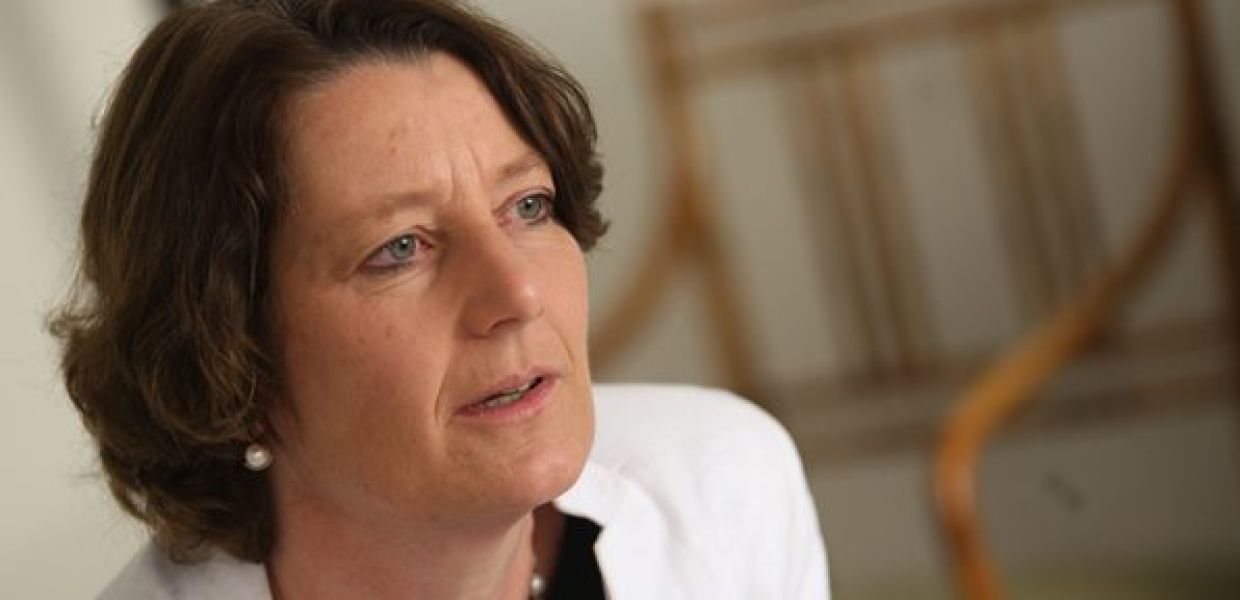Women could bring 9bn boost to Europe

A European Commission survey on the Information and Communication Technologies (ICT) industry says that getting more women into digital jobs would bring a 9 billion euro boost to European GDP as well as benefiting the industry and women themselves. But at present, out of 1,000 women with a degree, only 29 hold a degree in ICT (as compared to 95 men), and only 4 in 1,000 women will eventually work in the ICT sector.
Did you know that the first computer programmer was a woman? Ada Lovelace, daughter of the poet Lord Byron, wrote the first ever computer program in 1842 - even though the machine that could process it hadn't been built then! Read a recent NY Times blog on Ada and women in programming.
In her blog on International Women's Day earlier this year, Commissioner Neelie Kroes said that 'less than 30% of the ICT workforce are women! We should be doing everything we can to change that, and to encourage more women to access those opportunities. It's not just good for equal rights – it's essential to our competitiveness.' And in October this year, following the EC's survey, she said, 'We now know, beyond doubt, that more women in a business mean a healthier business. It is high time the IT sector realised this and allowed women a chance to help the sector and Europe's economy benefit from their enormous potential'.
At Europeana, we couldn't agree more. And with a workforce that's just about 50:50 men to women, and with a woman as Executive Director, we believe there are great benefits to a well-balanced workforce. So, over the course of two blogs, we'll be introducing you to some of the women in technical roles who help make Europeana and its ecosystem run smoothly. Please share our blogs with your own teams and your younger sisters, cousins and friends. Let's show them that working with technology isn't just a job for the boys!
First of all, let's meet Jill Cousins, Executive Director of Europeana, Europe's digital library, museum and archive...

Have you always been interested in technology?
Jill: Yes, I think so. I breathed a sigh of relief when In the early '80s I could use a PC to create an MS Dos database to hold 4,000 Arabic and Turkish place names for my thesis on 16th Century Arabic and Turkish Seacharts. It meant I didn't have to re-type a whole page if I made a typo and I could start to make connections more easily. Since then, other than a brief sojourn as a Map Researcher for the UK Ministry of Defence, where things had to be handwritten in my already illegible hieroglyphics, I have always worked with computers and online communications tools. I am not interested in technology per se, I avoid gadgets and hate Tom Toms but I do like what it opens up.
How did you get into working in the digital world?
Jill: Well, I've been working with digital technology almost all my working life. The Ministry of Defence more or less kicked me out because I was a member of the Campaign for Nuclear Disarmament and so I got a job as an 'Information Specialist' for a US Management Consultancy. They were involved in some very large-scale acquisitions and this was at the beginning of Dialogue, Datastar and Lexis Nexis - online databases giving you access to legal, financial and scientific texts and newspapers. So I acquired the 'skills' and left to set up my own research company delivering online research to those who couldn't search in these mysterious, keyword, set-combining, Boolean-logic-driven databases. I sold this company then to Disclosure, a UK branch of the US SEC filings delivery company. From here, I went to work in Oxford for the company behind Online Information where we acquired the rights to stage Internet World in Europe and from there into web publishing with VNU and then the Oxford Academic publishers (all web and online) before setting up The European Library and then Europeana.
Why is it important to Europeana to have a good balance of men and women?
Jill: I think it's useful to have different ways of looking at the world in an organisation. I think it strengthens your understanding. I do know, although the mix was not the result of a conscious decision, that you have very different dynamics in predominantly male or female workplaces. The whole atmosphere can be different. I like the mix and I think it serves us well. I would like to see some more girl hackers and programmers - we've had a couple over the last 5 years, including my very first hire into The European Library.
Show your support for more women in digital jobs by tweeting with the following hashtags: #girlsinict, #girlsdigital, #womendigital
